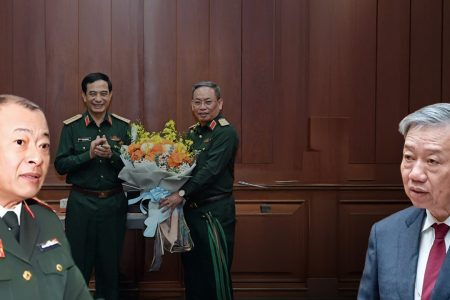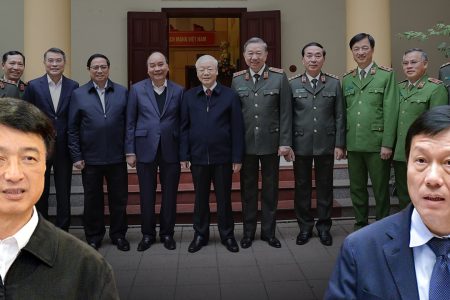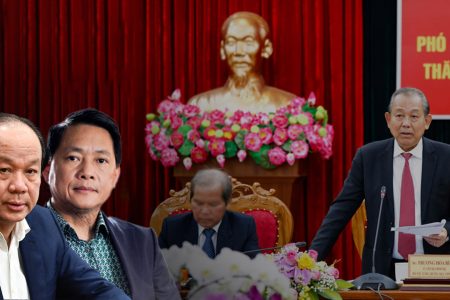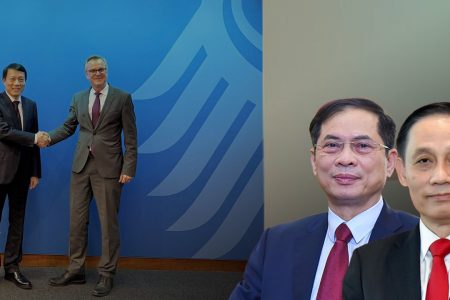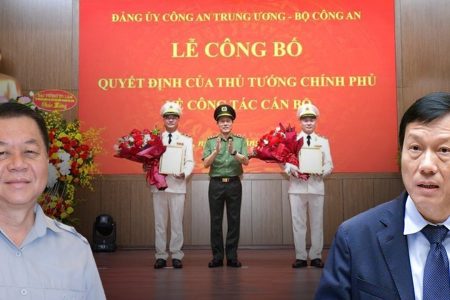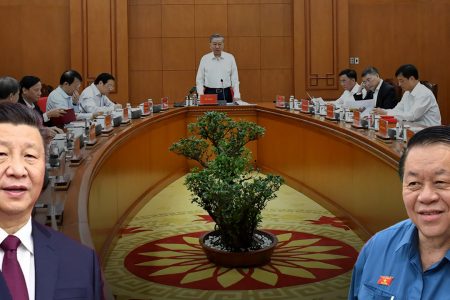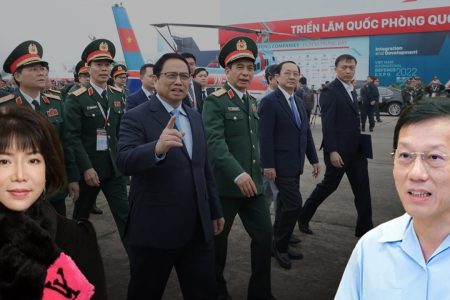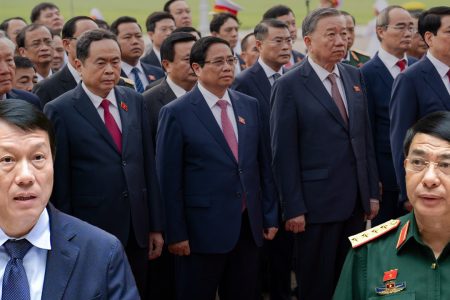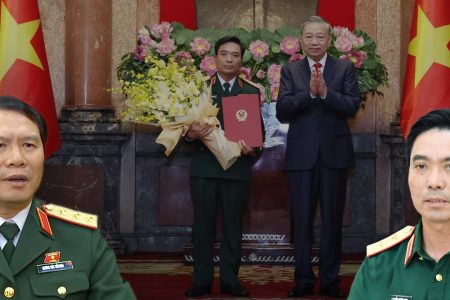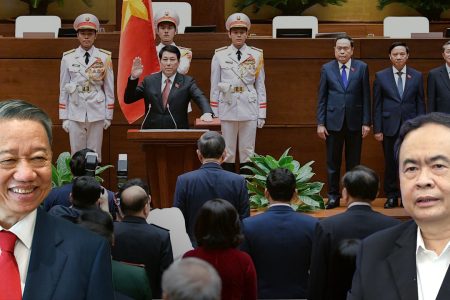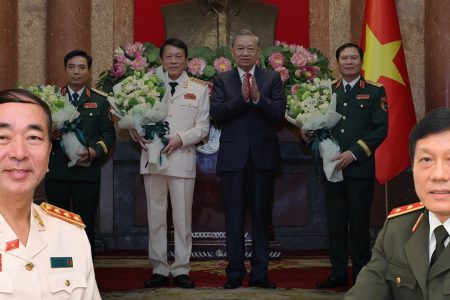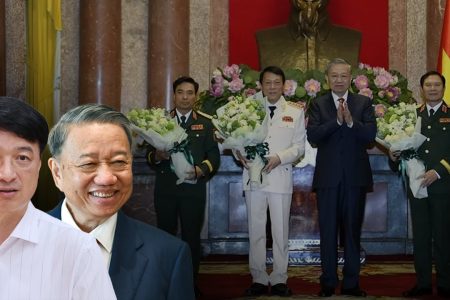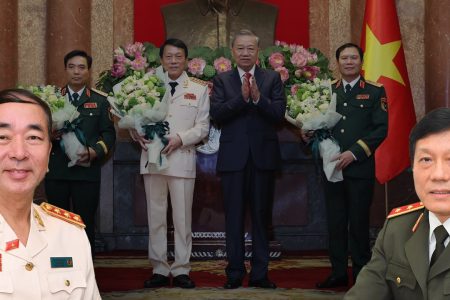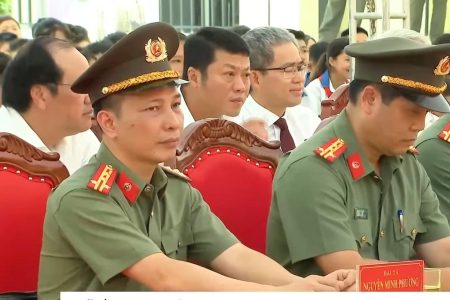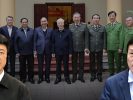
In the context of the confrontation between China and the United States, the struggle for global influence and the tense Asian region, Vietnam suddenly upgrading its diplomatic relations with the United States to the level of a comprehensive strategic partnership will certainly make Russia and China extremely angry.
The visit of Chinese President Xi Jinping, in response to the visit of General Secretary of the Communist Party of Vietnam Nguyen Phu Trong at the end of 2022, has been postponed several times. For many different reasons, initially, this visit was postponed from late October to early November 2023; But then, it is likely to be postponed again until the end of 2023.
Most recently, Chinese Foreign Ministry Spokesman Wang Wenbin, on November 10, when answering questions from reporters in Beijing about whether President Xi Jinping would visit Hanoi or not, his answer was “had no information to provide.”
Could that be a sign to postpone the visit indefinitely?
Voice of America VOA in the news “Beijing: China and Vietnam had a frank and friendly exchange on bilateral relations” said that the Chinese Deputy Foreign Minister had a frank and friendly conversation with his Vietnamese counterpart in Hanoi on Thursday, November 9, on bilateral, border, land and maritime issues.
That was the meeting between Chinese Deputy Foreign Minister Sun Weidong and Vietnamese Deputy Foreign Minister Nguyen Minh Vu. Notably, according to an international news agency, this meeting “… was not previously disclosed by Beijing, and up to now it has not been reported by Vietnam’s state-controlled press.”
Regarding Deputy Minister Sun Weidong’s visit to Hanoi, the Vietnamese Ministry of Foreign Affairs recently said that China and Vietnam have discussed in-depth bilateral relations and border and territorial issues between the two countries as well as international and regional issues of mutual interest.
Meanwhile, Chinese Foreign Ministry Spokesman Wang Wenbin in Beijing said more clearly: “… the two sides fully affirm their joint efforts to maintain the stability of the maritime situation in the recent years, reaffirming the need to continue to strengthen dialogue and consultation as well as adequately resolve differences between the two sides.”
According to analysts, a visit by a Chinese Deputy Foreign Minister took place in secret, and exchanges related to the issue of “… the maritime situation in recent years, reaffirmed the need to It is necessary to continue to strengthen dialogue and consultation as well as adequately resolve differences between the two sides.”
This shows that the South China Sea issues in the relationship between Beijing and Hanoi may be more important to China than Vietnam showing signs of tightening relations with the United States.
For a long time, in the eyes of international political analysts as well as in Vietnam, there has been a common opinion that the General Secretary of the Communist Party of Vietnam is a pro-China person. Not only because Trong is a steadfast advocate of socialism, but also because he relies on China to maintain sole power within the Vietnamese Communists.
Typically, in 2014, Beijing brought the HD-981 oil rig deep into Vietnam’s continental shelf, only 80 nautical miles from the nearest coast and 119 nautical miles from Ly Son island. China has seriously violated Vietnam’s territorial waters.
At that time, then Prime Minister Nguyen Tan Dung and Minister of Foreign Affairs Pham Binh Minh, along with a number of Politburo members, asked the General Secretary and the Politburo collective to approve and allow the publication of a Resolution on Vietnam protested Beijing’s actions, but it was not accepted.
Then, on the morning of December 8, 2015, General Secretary Nguyen Phu Trong, in a meeting with Hanoi voters, to report the results of the 10th session of the 13th National Assembly, affirmed:
“Do you think we are solving the East Sea issue correctly? If any clashes happen, given how unstable the situation is now, can we sit here and discuss organizing the Party Congress?”
However, why, recently, have General Secretary Nguyen Phu Trong and the Vietnamese leadership pushed the Sino-Vietnamese relationship into the current situation not satisfied for the both sides?
What does that have to do with the decline of General Secretary Trong, and the rise of Prime Minister Pham Minh Chinh – an element also pro-Beijing? After the recent 8th Plenum, people believe that Trong will be forced to retire at the end of the 13th National Congress.
The answer is, with Xi Jinping’s current expansionism, if Vietnam does not take a resolute stance to protect the sovereignty of the South China Sea, and remains cowardly like General Secretary Trong, then the sea will surely be lost to the hands of Beijing. If so, even after retirement, Nguyen Phu Trong would not have a place to bury his body on Vietnamese soil but would probably have to bring his body to China, like Hoang Van Hoan. And now, Trong has awakened to that.
Thoibao.de (Translated)



